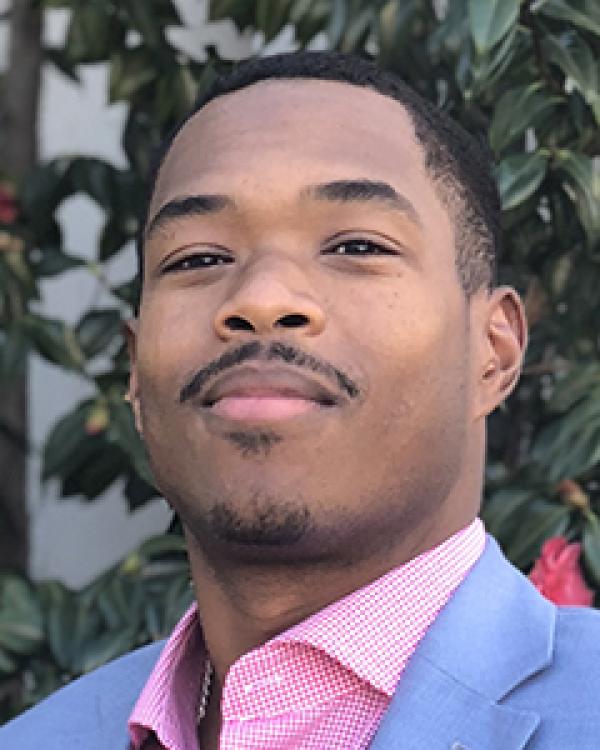
Department of Education doctoral candidate Justin McClinton has been selected as a fellow by the National Center for Free Speech and Civic Engagement. Through their research, the fellows explore issues ranging from what the latest data demonstrate about college students’ views on free speech to how those views may vary among different groups of students and in what ways those views may have changed from previous generations. The fellows also examine how our nation’s political polarization drives changing perspectives on the First Amendment and how the rise of social media and the fragmentation of traditional media impact students and others’ views of free speech. As one of the first fellows, Justin McClinton will “develop a toolkit that helps university administrators prepare incoming students for challenging ideas and civil engagement.”
GGSE: Tell us a little about your current research topic.
McClinton: My current research topic is on the labor negotiation process within charter schools. My dissertation is a case study about a group of teachers within a charter school network that took it upon themselves to lobby for third party employment representation. I explore what causes charter teachers to seek unionization as well as the administrative response to the teachers desire to form a union. As far as my work with the Free Speech Center, I’ll be working at UC Berkeley on the role the first amendment plays in the teaching and learning side of higher education institutions.
GGSE: Why are you interested in that?
McClinton: I am interested in charter schools because they represent a form of innovation within the K-12 education system. It is important to assess whether or not they are worthwhile in an experimental sense to determine what are the best ways to improve the K-12 system going forward. Idea exploration is vital to teaching so there is work to be done to determine how ideas, particularly ones we deem controversial, should be discussed within the university and in public discourse.
GGSE: Why did you get involved with the UC Center for Free Speech and Civic Engagement?
McClinton: Mostly because of an ad in the UCSB student newspaper, but idea exploration has been so vital to my path throughout life. I find the current migration of those in search of ideas to online media platforms like YouTube to be fascinating. Along with this, it is crucial that the university continues to remain in the fold as the avenues through which people exchange ideas continue to progress.
GGSE: What are you looking forward to in working with the center?
McClinton: There really is a strong group of inaugural fellows as well as many other incredible people involved with the Free Speech Center. I can’t wait to meet them all at our summit in DC later this year. I’m truly excited to dig deeper into this work on the first amendment so stay tuned.